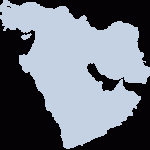Tuesday
May182010
Middle East Inside Line: IDF Concern over Settlers, Israel's Warning to Europeans, Barak's Tactics, Chomsky on "Stalinist" Israel
 Tuesday, May 18, 2010 at 6:47
Tuesday, May 18, 2010 at 6:47  Israel Defense Forces Concern over Settlers: The head of Israel Defense Forces' Central Command, General Avi Mizrahi, told the troops of Kfir Infantry Brigade on Monday that the recent spate of settler violence could lead to a Palestinian uprising in the West Bank.
Israel Defense Forces Concern over Settlers: The head of Israel Defense Forces' Central Command, General Avi Mizrahi, told the troops of Kfir Infantry Brigade on Monday that the recent spate of settler violence could lead to a Palestinian uprising in the West Bank.The Kfir Brigade, created in December 2005, consists of six battalions who man 30 percent of the roadblocks in the West Bank and are responsible for 60 percent of arrests. Although the IDF is not aware of any plan, Mizrahi said, the IDF must be ready for any escalation in the territory and for the possibility of fighting the Palestinian forces, trained in Jordan by US General Keith Dayton. Mizrahi continued:
Middle East Inside Line: Proximity Talks Continue; Israel’s Lieberman & Palestine; Chomsky Barred
In most of the settlements, there is no problem,. Most are normative – but another mosque arson, and yet another arson, and it all comes together. But Yitzhar, Gilad's Farm, Maon, they don't believe in us at all as a state. They want only one thing, and when someone loses his boundaries, you don't know where it's going to go.
"Hands off Gaza": The Israeli Foreign Ministry warned Turkey, Greece, Ireland, and Sweden that any of their citizens setting sail for Gaza would be stopped before they could reach the coastal territory.
Earlier Monday, Israeli security forces released and deported a Turkish national arrested this month for allegedly belonging to an outlawed Islamic group.
Israel's Barak Aligning with Obama: Unlike his coalition partners, Ehud Barak prefers playing the "good guy" within the context of a regional peace under Washington's guidance. Possibly because of benefits when compared to partners' "intransigence", the Labor Party declines to hit the media with conservative and provocative statements on Jerusalem.
Barak on Monday urged Israeli lawmakers to refrain from taking any actions or making remarks that might present West Jerusalem's opposition to the Middle East peace process, according to Israel Radio. He also said that Israel must work to increase the mutual trust with its top ally, the United States, and added that the proximity talks must eventually lead to direct talks with the Palestinians.
Chomsky's Response to Israeli Officials: Having been refused entry into Israel on Sunday, Noam Chomsky likened Israel to a "Stalinist regime". In a telephone conversation with Haaretz, Chomsky said from Jordan:
The official asked me why I was lecturing only at Bir Zeit and not an Israeli university. I told him that I have lectured a great deal in Israel. The official read the following statement: 'Israel does not like what you say.
I find it hard to think of a similar case, in which entry to a person is denied because he is not lecturing in Tel Aviv. Perhaps only in Stalinist regimes.
Israel's Lieberman on North Korea: Foreign Minister Avigdor Lieberman on Sunday responded to a personal attack from the North Korean Foreign Ministry, which called him "an imbecile". He said, "I see it as a compliment from the North Koreans."




